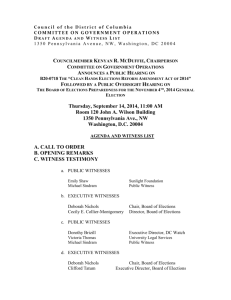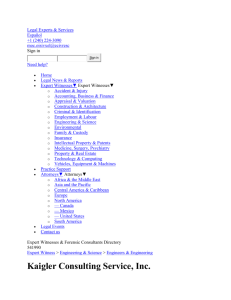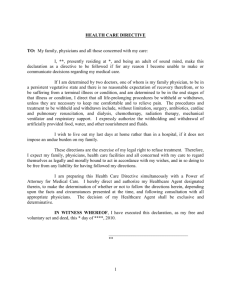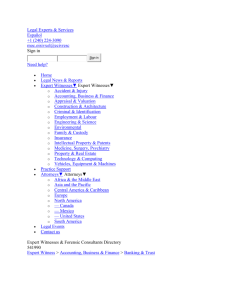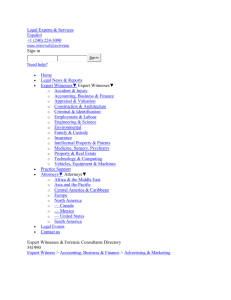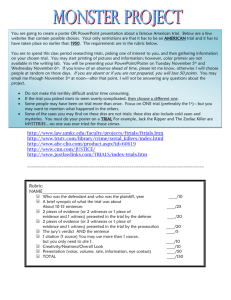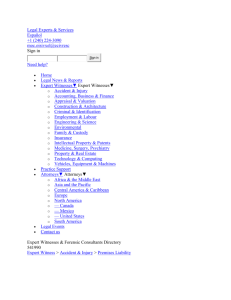Preparing For Court - Wichita State University
advertisement
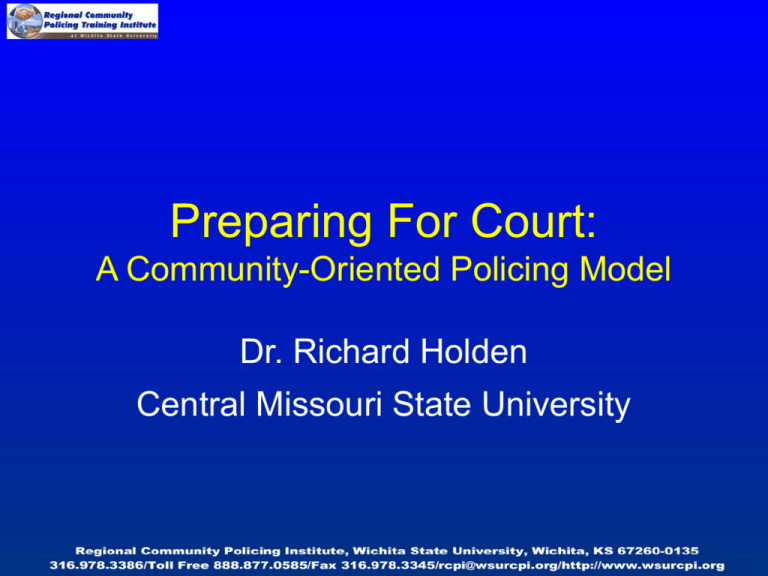
Preparing For Court: A Community-Oriented Policing Model Dr. Richard Holden Central Missouri State University Introduction • Successful trial performance is directly related to successful case preparation. • The proper point and time to begin preparation for trial is upon receipt of the initial call for service. • Handle every call as though it will go to trial. On-Scene Preparation • Conduct sound preliminary investigation. • Protect the scene and physical evidence. • Note spontaneous statements. • Take statements from witnesses. Witnesses • Witnesses are the keys to successful investigation. • The reality of police effectiveness is simple: • “The police solve crimes when someone tells them a crime has been committed and someone tells them who did it.” Witness Preparation • Preparing a witness for court begins at the scene. • Police officer professional conduct and courtesy help to allay witness fears. – Fear of angering others. – Fear of being targeted by the suspect. – Fear of lengthy, and potentially costly, involvement with legal processes. Station Preparation • Station procedures are a continuation of actions started at the crime scene. • Physical evidence should be carefully marked and processed. • While officer’s memory is fresh, notes should be carefully reviewed and completed in a neat and orderly manner. • Final witness interviews should be completed. Witness Interviews at Station • Witnesses should be interviewed in a thorough and timely manner. • Once more, professionalism and courtesy coupled with consideration for witness fears and convenience, should be of primary importance. • Remember, witnesses will be asked to testify in court. Their willingness to do so is often related to their assessment of the investigating officer. Prior to Trial • Officers should refresh their memory by reviewing their notes. • Officers should meet with the prosecutor to discuss the case and organize its presentation. • Officers should verify identification of the physical evidence and ensure its availability for court. Witnesses Preparation • Witnesses should also be advised that the court date is growing near. They have the same need to refresh their memory by reviewing their statements. • Witnesses should be advised of appropriate courtroom attire and demeanor. • The officer should take this opportunity to encourage the witness. Factors of Encouragement • Demonstrate appreciation for his/her willingness to testify. • Demonstrate Understanding for the individual’s growing nervousness. • Explain how the court process will work. • Emphasize the need for the witness to be truthful and honest in the presentation of testimony. Courtroom Preparation • When possible, officers should escort witnesses to court or, at least, meet them in front of the courthouse. • Officers should sit with the witnesses in witness rooms and engage in casual conversation. • Remember that witnesses are nervous. A calm demeanor and quiet encouragement will help alleviate witness fear. Courtroom Attire • Police and witnesses should conform to the basic rules of good courtroom demeanor. • Be on time. • Dress conservatively in business attire. • Be neatly groomed. Responding to Attorney Questions • The witness should maintain good posture on the witness stand. • Respond to all questions honestly and with courtesy. • Responses should be directed at the person asking the questions. • All answers should be concise and to the point. The Witness/Attorney Relationship • All answers must be truthful. If the witness is uncertain of the answer or does not know the answer, that should be stated. If the witness is confused by the question ask for it to be restated. • Witnesses must never engage in a battle of wits with attorneys. • Witnesses must remain calm and poised while giving testimony. Causes of Witness Failure • Poor attitude • Arrogance or hostility • Poor preparation • Poor appearance • Convey poor image to judge and/or jury.
